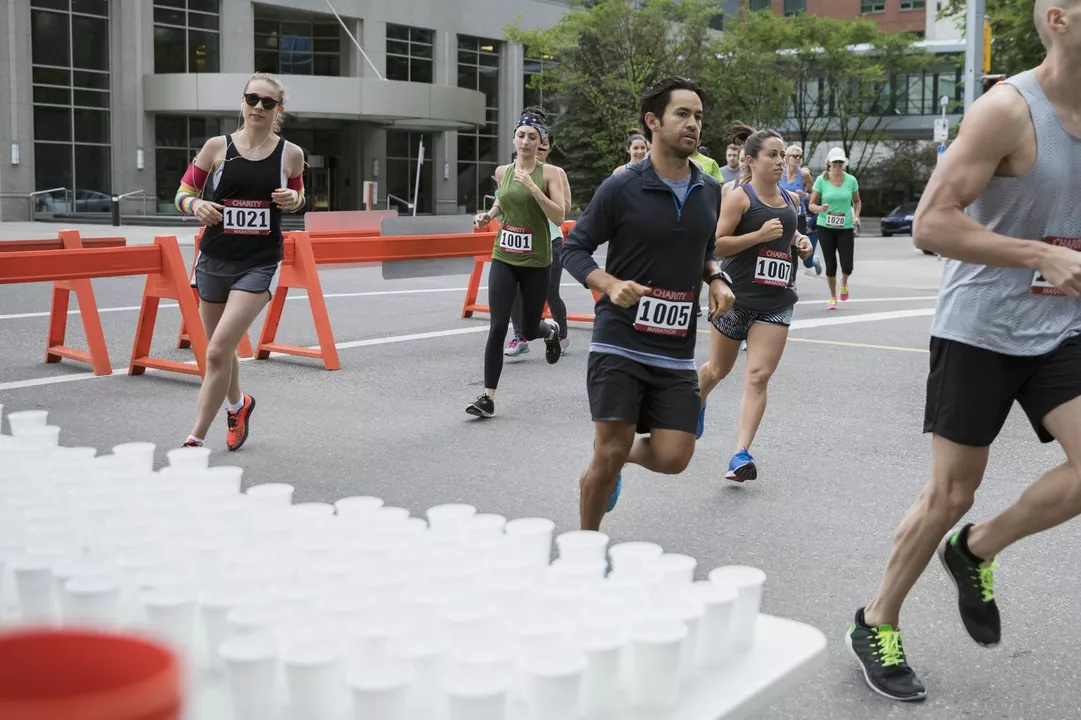
The Importance of Fueling Your Body
Running a half marathon is no small feat, and it requires adequate preparation to ensure a successful and enjoyable race. One of the key factors in preparing for a half marathon is making sure you provide your body with the necessary fuel it needs to power you through those 13.1 miles. In this article, we'll explore whether or not you should eat before running a half marathon, and if so, what types of foods are best to consume.
Understanding Pre-Race Nutrition
When we talk about pre-race nutrition, we are essentially discussing the food and drinks you consume in the hours leading up to the race. This is an important aspect of your overall race preparation, as it can have a significant impact on your performance and how you feel during the race. The right pre-race nutrition can help you avoid "hitting the wall," or running out of energy, and can keep your stomach settled throughout the race.
It's important to note that pre-race nutrition is not just about the meal you have immediately before the race, but also the meals you have in the days leading up to it. In the days before the race, you should focus on consuming a balanced diet, with an emphasis on carbohydrates to help ensure your muscles are fully stocked with glycogen, the primary source of energy during endurance events.
To Eat or Not to Eat
Some runners may feel hesitant about eating before a half marathon, fearing that it could lead to stomach issues or discomfort during the race. However, for most people, eating a small meal or snack before the race can actually be beneficial. This is because after a night of fasting, your glycogen stores are lower, and consuming some carbohydrates can help top off those stores and provide you with the energy needed for the race.
That being said, it's essential to listen to your own body and understand how it reacts to different foods and timing. Some runners may find that they perform better on an empty stomach, while others may feel weak and sluggish without a pre-race meal. Ultimately, the decision to eat or not to eat before a half marathon is a personal one and should be based on your own experiences and preferences.
Timing It Right
If you do choose to eat before your half marathon, it's crucial to get the timing right. Most experts recommend consuming a small meal or snack about 1.5 to 2 hours before the start of the race. This allows enough time for your body to digest the food and convert it into usable energy, without leaving you feeling too full or uncomfortable during the race.
Your pre-race meal should be relatively small and easy to digest, with a focus on carbohydrates and a small amount of protein. Avoid foods high in fat or fiber, as these can be more difficult to digest and may cause stomach issues during the race.
Carbohydrate-Rich Options
As mentioned earlier, carbohydrates are a crucial component of your pre-race meal, as they are your body's primary source of fuel during endurance events. Some good carbohydrate-rich options include:
- Bananas
- Bagels or toast with a small amount of peanut butter
- Oatmeal
- Rice cakes
- Energy bars or gels
It's essential to choose foods that you are familiar with and have consumed before a run in the past, to minimize the risk of any adverse reactions during the race.
Hydration is Key
Proper hydration is just as important as nutrition when it comes to preparing for a half marathon. In the hours leading up to the race, make sure to drink plenty of water or electrolyte-containing sports drinks to ensure you are adequately hydrated. Avoid consuming large amounts of caffeine or alcohol, as these can have a diuretic effect and may contribute to dehydration.
It's also important to have a hydration plan during the race, whether that means carrying a water bottle with you or taking advantage of the water stations provided by the race organizers. Staying well-hydrated throughout the race can help prevent cramping, fatigue, and other issues related to dehydration.
Experiment During Training
The best way to determine what works for you when it comes to pre-race nutrition is to experiment during your training runs. Try out different types of foods, meal timings, and hydration strategies to see what makes you feel and perform your best. This will help you develop a solid pre-race routine that you can rely on when it's time for the big race.
Post-Race Recovery
While this article focuses on what to eat before running a half marathon, it's important to also consider your post-race nutrition. After completing the race, your body will need to replenish its glycogen stores and repair damaged muscle tissue. Consuming a meal or snack that contains both carbohydrates and protein within 30 minutes to an hour after the race can help promote optimal recovery.
Some good options for post-race recovery foods include:
- Fruit smoothies with protein powder
- Yogurt with fruit and granola
- Chocolate milk
- Turkey or chicken sandwich on whole-grain bread
- Protein bars
By focusing on both pre- and post-race nutrition, you can help ensure that your body is properly fueled and ready to tackle the challenge of a half marathon.
Related Posts
You may like these posts too



Write a comment